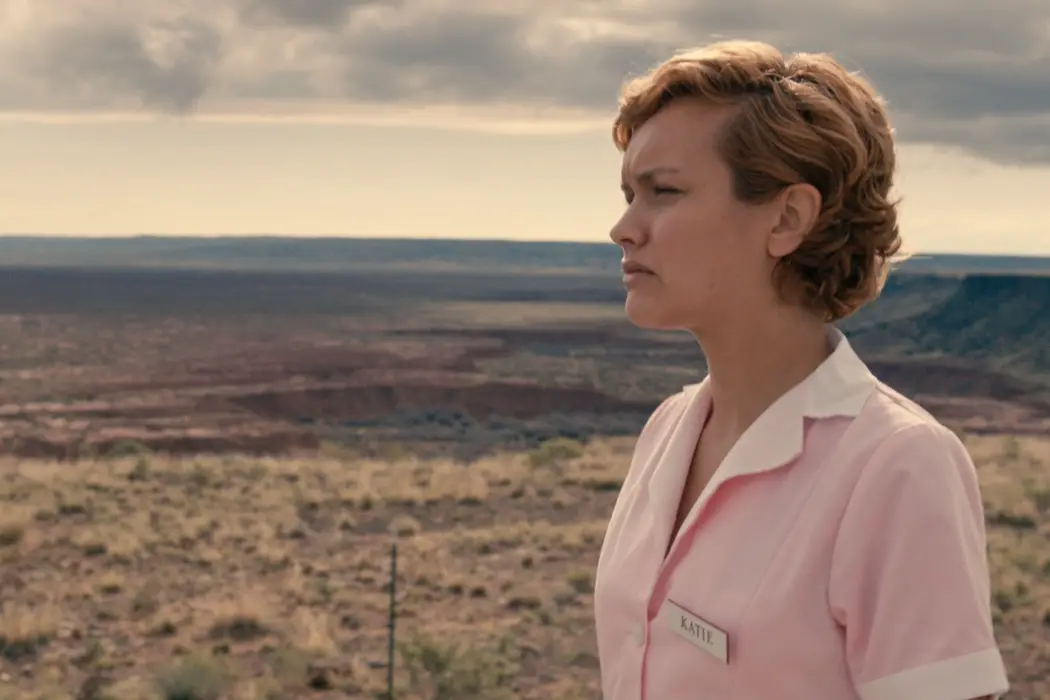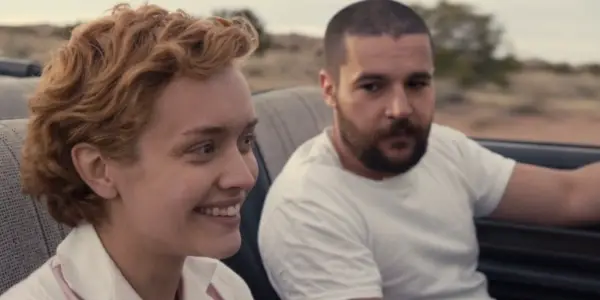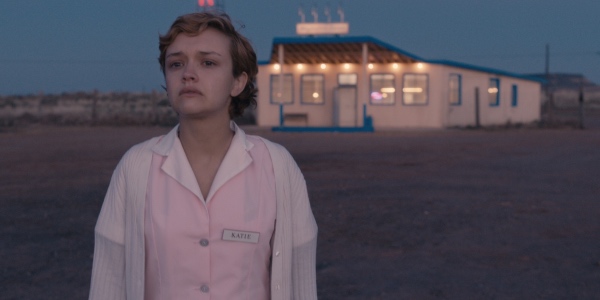KATIE SAYS GOODBYE: Substituting Masochism For Meaning

Amanda is a film student from California.
Trigger Warning: This review briefly touches on topics such as rape.
Whoever is in the position of writing a woman into a story, holds all of the power. The power to write a multifaceted humanly flawed character, or the same power to write a more two dimensional character that heightens human plot holes in order to adhere to a story of the writers choice.
While I don’t believe it was first time writer and director of Katie Says Goodbye Wayne Roberts‘ intention – his take on the countless sufferings of a prostitute went over like someone attending a dinner party that they weren’t invited to and then proceeding to tell a depressing story where a Disney Princess gets repeatedly stabbed with a dull knife.
Katie is not a woman, she is a prostitute. Her storyline doesn’t merit her the satisfaction of womanhood. Rather, her woman body acts as a stoic artifact preserved from damage in a museum where you have to pay to enjoy it.
Phenomenal Performances Can Only Go So Far
Seventeen-year-old Katie, played by the immensely talented Olivia Cooke (Thoroughbreds, Me and Earl and the Dying Girl) is a waitress and prostitute living in the desert South West: Arizona (however, it is filmed in New Mexico). She meets a broad shouldered mechanic named Bruno played by none other than, Christopher Abbott (known for James White, and also as the rightful choice as Batman), where he is quite literally the embodiment of the phrase “a man of few words.”

Bruno’s lack of really any dialogue whatsoever poses no issue to sweet-hearted Katie. His brooding charm paired with her hopeless naive sense of a romance causes her to fall in love at first sight. He even questions why she likes him, to which she responds: “Because I see something in you that I haven’t seen before.”
Katie’s romanticized way of thinking follows her through her dream of escaping to the city of San Francisco. The money she makes prostituting goes into a decorated shoe box for safe keeping; it is collaged with pictures of popular sights in San Francisco. Katie tenderly holds the box, the only connection to her dream and a way out, as she meticulously calculates how much more cash she will need. Her detrimental yet beautiful way of looking at life is heavily contrasted by her current environment of living in the desert. She longs to live in a place that matches the optimism in her mind.
Whether it was taking blows from her deadbeat mother (Mireille Enos) to a brutal rape, Katie always got back up with a smile on her face. Her blind optimism on the world causing her to trust the wrong people, but also to inexplicably move forward. It is a tale as old as time where bad things happen to good people.
Was There A Point To All Of The Suffering?
Obviously I’m aware that this movie wasn’t supposed to be an uplifting take on reclaiming a woman’s journey through prostitution. After all, Katie Says Goodbye is coming from seasoned producers Antonio Campos, Josh Mond, and Sean Durkin. They’re the guys that brought you the brilliantly, but indeed dark films: James White, Simon Killer, and most recently Piercing.

While I really don’t think Katie Says Goodbye needed to be this amazingly devastating take on prostitution, I do believe if you’re going to make your protagonist continuously suffer with the intention of portraying resilience, you should probably make sure it connects in a meaningful way to your point. In a film that’s supposed to convey strength in a character, it’s a little ironic to me that Katie’s lifestyle as a prostitute was only explored through the suffering and blame thrown upon her without the real intention of making a solid meaningful point. But at least she had a smile in the end and got back up right?
This is the very first movie in a trilogy that director Wayne Roberts is creating. The second installment titled The Professor will understandably be focusing on a Professor, played by Johnny Depp, that will also be saying goodbye to his character’s way of life. Roberts mentions that the final film will circle back to Katie’s story, and will showcase how she has now “made the right choice”. I genuinely hope that the trilogy going forward will present themes, and follow through with the intentions that I know are there, in order to connect the storyline in a more meaningful way.
Katie Says Goodbye: In Conclusion
Playing an uplifting song at the end of a film doesn’t resolve the absence of thematic meaning that was lacking throughout the entire movie.
Do you think there was a point to the suffering? Let us know below!
Katie Says Goodbye got a limited United States Release on June 7, 2019.
Does content like this matter to you?
Become a Member and support film journalism. Unlock access to all of Film Inquiry`s great articles. Join a community of like-minded readers who are passionate about cinema - get access to our private members Network, give back to independent filmmakers, and more.












